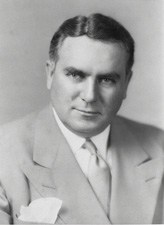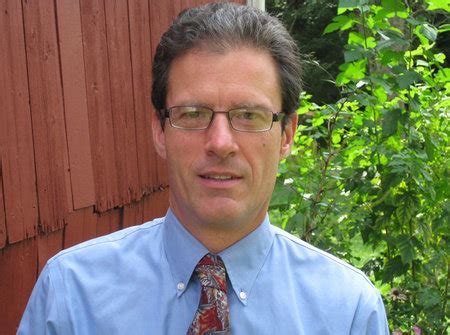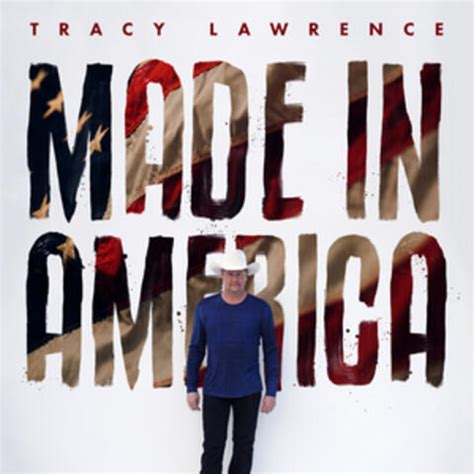A Quote by Ellen Page
Do I think it would be better that people knew the atrocities that Monsanto commits or the influence of corporate money in government or government subsidies for our current food system that's a disaster and not sustainable? Yes. That would be really great, but a lot of that information unless you look for it, it's not available to you because that's not the discussion that's happening on mainstream news.
Related Quotes
If I was in government and running government, I think I would use the government data, because I wouldn't know where else to look, quite frankly. And if I didn't like that data, I would work hard to make sure it got better and better and better, whether it was at the state or local or federal level.
Even if someone wanted a purely free-market, competitive media system, it would require extensive government regulation to set up those markets. All our largest media companies are based on the grant of explicit government monopoly privileges and licenses, or franchises, or subsidies. The government didn't come in after the system was in place, it built the system in the first place.
Who knew, in 2000, that compassionate conservatism meant bigger government, unrestricted government spending, government intrusion in personal matters, government ineptitude, and cronyism in disaster relief? Who knew, in 2000, that the only bill the president would veto, six years later, would be one on funding stem-cell research? A more accurate term for Mr. Bush's political philosophy might be incontinent conservatism.
The experience of a century and a half has demonstrated that our system of free government functions best when the maximum degree of information is made available to our people. In fact, free and candid discussion of vexing problems is the bedrock of democracy and it may be our surest safeguard for peace.
We hear from time to time about horrible human rights atrocities happening around the globe. Our government claims that it stands in favor of human rights, and our leaders are in the news demanding consequences for other countries that are abusing their populations. But there is a huge denial about how widespread and common these kinds of atrocities are in the United States, and that we are not nearly as different from other countries as we would like to believe we are.
The analysis in the era of Ronald Reagan and Margaret Thatcher was that government was interfering with the efficiency of the economy through protectionism, government subsidies, and government ownership. Once the government "got out of the way," private markets would allocate resources efficiently and generate robust growth. Development would simply come.
I think one of the things that's happening is that people are realizing that they can't pass the buck to the government because the government, at least as far it comes to environmental protection, doesn't exist. That they're going to have to bite the bullet a little bit themselves. Look, there are no silver linings to Trumpism. This is an unmitigated disaster. But let's hope that at least it helps people find their courage in this resistance.
I would like to see transparency become the default for the American government: Abolish the Freedom of Information Act so we don't have to ask government for information but government must ask to keep information from us. The more transparent government is, the more collaborative it can become. The more our officials learn to trust us - with information and a role in government - the more we can trust them.
Anything would be better in the US than what you have. As a government it's really very low quality, given the fact that this country produces eminent intellectuals, has great universities, and then the people who arrive in government are very mediocre. The Latin American situation has been very different in the first place, because writers have spoken for those who have no voice. The rate of illiteracy, poverty, joblessness in Latin America has been so great throughout our history that if the writers didn't speak out for the people, nobody would.
Whenever there is some trouble in any area of the economy, the simplest solution to many people is "Let the government fix it." Yet ... every time the government uses its money or its power to favor this group or that ... the net result is such a web of supports, subsidies, interventions and controls that it is almost impossible for a nation to find its way back into a dynamic system of really free enterprise.
I looked at a lot of the comics and I tried to just get an idea from that. Not necessarily specifics of what my look would be or what the plan would be because I knew the script was evolving. I then started the discussion with Ken, who had been in discussion with you guys, intimately. And that they'd pared it down.
I think that if you have a single payer system and an opt-out for people who want to pay more [for better service, etc.], I think it would be better - and I think we'll eventually get there. It wouldn't be better at the top - [our current system] is the best in the world at the top. But the waste in the present system is awesome and we do get some very perverse incentives.
In a really equal democracy, every or any section would be represented, not disproportionately, but proportionately. ... Unless they are, there is not equal government, but a government of inequality and privilege: one part of the people rule over the rest: there is a part whose fair and equal share of influence in the representation is withheld from them, contrary to all just government, but, above all, contrary to the principle of democracy, which professes equality as its very root and foundation.




































